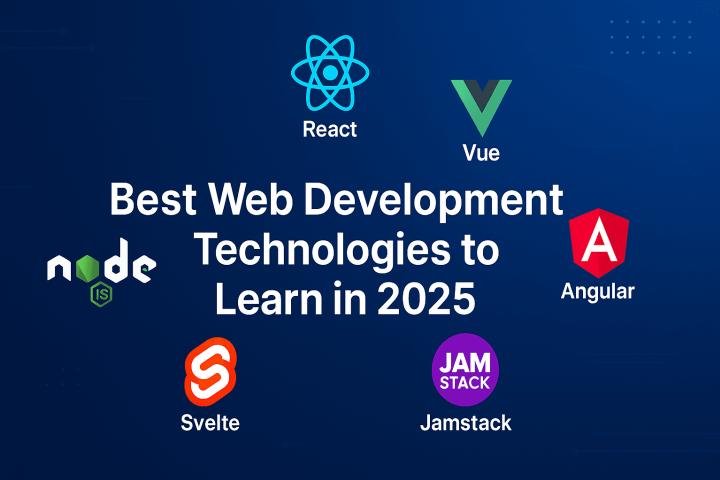Selecting the ideal Content Management System (CMS) is a strategic decision that can significantly impact how a business manages its digital presence. With numerous CMS platforms available, each tailored to specific needs, understanding the differences is key to making an informed choice.
Exploring Enterprise CMS Options: Choosing the Right Platform for Your Business
Written by
PromoteProject
Related articles:
Aligning AI development investments with long-term IT architecture
Enterprises and high growth startups are investing heavily in artificial intelligence. Many initiatives begin with strong ambition and generous budgets. Yet a large share of AI programs stall after pilot..
How Enterprises Can Use Conversational AI Agents to Reduce Operational Workload
Enterprise organizations today manage complex operational ecosystems. Customer inquiries, internal support requests, data retrieval, scheduling, reporting, and workflow coordination consume thousands of human hours every month. As businesses scale, these..
Executive Leadership Development: Reinforcing Communication and Influence
The modern world of business is rather dynamic and unstable, with the contemporary world of leadership no longer being a matter of power or making choices. It is communication, influence,..
From proof of concept to production: Scaling AI systems in enterprises
Across global enterprises and high-growth startups, artificial intelligence has moved from experimentation to expectation. Many organizations already have proof-of-concept models that validate feasibility and early business value. Yet only a..
Top Web Development Technologies to Learn in 2026
Web development ek aisa field hai jo har saal naye tools aur technologies ke saath evolve hota rehta hai. Jo technologies aaj popular hain, ho sakta hai kuch saalon baad..
How to Monetize Your Blockchain Game Successfully in 2026?
The gaming industry has experienced a revolutionary shift over the past few years, with blockchain technology emerging as a game-changer. By integrating decentralized systems, token economies, and unique digital assets,..
AI/GPT Integration with Laravel: Use Cases, Tips & Libraries
Forget the sci-fi hype; this is the real deal, where AI chats back to your users, predicts their next move, and hands your developers a coffee while they focus on..
Why ERC-20 Is the Go-To Standard for ICOs?
Ever wondered why every ICO seems to start with an ERC-20 token? If you're exploring crypto fundraising for your project, this question has probably crossed your mind. You might be..
The Role of a Web3 Development Company in Blockchain Scalability
Blockchain scalability refers to the ability of a blockchain network to handle increasing numbers of transactions efficiently, without compromising speed, security, or decentralization. As blockchain adoption grows, many networks face..
What CIOs should know before investing in large-scale AI Development Services
AI adoption has shifted from experimentation to enterprise-wide transformation. CIOs are now expected to lead strategic investment decisions that influence operational efficiency, product innovation, and long-term competitiveness. As organizations expand..
How Gamification Can Make Your App or Website Feel Like a Game (and Drive Engagement)
When users log into your app or visit your website, you want more than just clicks — you want them engaged, returning, and even smiling. Gamification offers a powerful way..
Websites in the Age of AI Summaries: Staying Relevant in a Changing Search Landscape
Search behavior is undergoing one of its most profound transformations since the birth of the internet. For decades, the web revolved around the search engine results page: a list of..
7 Factors to Keep in Mind: Outreach Authorized Websites
We know that reaching out to high-quality and reputable
websites is essential for improved brand awareness, authority building, and an
increase in traffic. But a lot of websites have increased..
Security Essentials for eCommerce Websites in 2025
In 2025, the stakes for eCommerce website security are higher than ever. With the rapid growth of online shopping and the increasing sophistication of cyber threats, it's crucial for businesses..
We Reviewed 50+ Top AI Plugins for WordPress Websites
Are you searching for the best AI plugins for WordPress websites? Explore our expert reviews of 50+ tools for content, SEO, chatbots, images, and more.Read More : AI Plugins for..
How to Find the Best Coupon Websites on Google and Save Big!
Hey, folks!Online shopping can sometimes feel like it’s draining your wallet, right? Don’t stress! Coupon websites are your go-to for snagging awesome deals and promo codes to save you a..
B2B Travel Websites
Travelopro is a top B2B travel website development company, offering booking solutions to travel agencies globally. Equipped with improved technologies, we use an impeccable platform to offer services. We provide..
Creating Dynamic Websites: What You Need to Know
In the fast-paced world of the internet, where competition for user attention is fierce, creating a dynamic website is no longer a luxury—it’s a necessity. Whether you're running a small..

















